The Wildlife Trusts’ 30 Days Wild challenge
30 Days Wild is The Wildlife Trusts’ annual challenge event, where everyone involved does one wild thing a day throughout the month of June.
For more information check The Wildlife Trusts website.
Encouraging a biodiverse parish
30 Days Wild is The Wildlife Trusts’ annual challenge event, where everyone involved does one wild thing a day throughout the month of June.
For more information check The Wildlife Trusts website.
Did you complete No Mow May? Your wildflowers and pollinators appreciate your effort in transforming your lawn and local green spaces.
But the work doesn’t have to stop here. Consider dedicating a part of your garden to let nature thrive in June as well. Whether you decide to maintain different grass lengths, watch out for wildlife, or mow selectively, you can continue to make an impact for wildlife and biodiversity.
Check out Plantlife’s guide to keeping the garden a wildlife haven: https://www.plantlife.org.uk/let-it-bloom-june-no-mow-may-is-over-whats-next/
Gardens hold huge potential to address the climate and biodiversity crisis, yet they are increasingly being covered with plastic, paving, and other materials that reduce their ecological value. Urban areas are witnessing a decline in biodiversity due to habitat destruction.
Across the UK a shift from green spaces to concrete and plastic has led to the disappearance of hedgehogs, pollinators and other key species, highlighting the consequences of such changes. Urban gardens, parks, and balconies can mitigate these effects by offering habitats for wildlife, linking ecosystems, and helping regulate urban temperatures. They can also act as carbon sinks, absorbing pollution and providing a buffer against climate impacts.
Efforts to preserve and enhance urban green spaces can make a significant difference. Planting pollinator-friendly flowers, maintaining wild gardens, and creating specific habitats for wildlife can transform gardens into biodiversity havens. This not only supports wildlife but also connects people with nature, fostering a greater appreciation and awareness of the environment.
Protecting and nurturing our green spaces is crucial in combating the climate and biodiversity crises. By prioritizing gardens and natural habitats over concrete and plastic, we can create a more sustainable and resilient urban environment for both wildlife and humans.
These themes are explored in an excellent article in The Guardian, where author of One Garden Against the World: In Search of Hope in a Changing Climate, Kate Bradbury, has a “Long read” summary of her new book.
The world of bioacoustics is booming in professional ecology surveys, however it is a complex endeavour with recording devices, and artificial intelligence (AI) to identify sounds. You may have used Merlin to identify birds, if so, you’ve done some bioacoustic surveys of your own, Cornell Lab have done an amazing job of turning bioacoustics into an app that everyone can use.
The Natural History Museum is running a bioacoustics project of its own Nature Overheard: Tune in to Your Streets.
Insects are important for a healthy environment, but noise can make it hard for them to communicate with each other. They may have to change their sounds to be heard in noisy places.
Join the NHM on the Nature Overheard survey, collecting data to better understand how road noise affect insects. Or take part in other activities to support their research while you build your own scientific skills and knowledge.
You can join the Nature Overhead survey here. Make recordings of your local streets and submit them, alongside a biodiversity survey to help researchers.
If you want to work directly with the audio recordings you can volunteer here. This effort will help build better models for bioacoustics, leading to better biodiversity data for the UK.

Molescroft Wildlife Network, recently put on a Hedgehog Highway Event at the Molescoft Pavilion, Beverley. We invited every household in Molescroft through a leafletting campaign. On the day we had several stalls which included Molescroft Wildlife Network, Wolds Hedgehog Rescue, the National Hedgehog Monitoring Project, HEY Smile Foundation Green and Blue Social Prescribing, hedgehog hibernacula construction, a display of emperor moths and childrens activities.
Throughout the day we had short presentations which were very well attended. This was our first event and we were all delighted how it went. We received many positive comments. One hundred and fifty people attended the day which was amazing. It was encouraging to see lots a happy, enthusiastic people enjoying conversation about hedgehogs and nature.
However, this would not have been possible without the help of Smile Hull Vault. We were loaned two collection boxes and were able to raise £40. Alongside this two display boards and an easel to provide information about the Molescroft Wildlife Network were provided by the Smile Hull Vault, which were amazing for community engagement.
However the biggest impact was the loan of a large projection screen and projector for our very well attended programme of presentations from the groups that also had stalls at the event. These were high quality items loaned, and in excellent condition and there’s no way that as a small group with limited funding so we would have been able to deliver an event as well as we did without these loans from Smile Vault Hull. The Vault is easy to use and collectionand return of items is straightforward.
A big thank you to The Vault and we look forward to out next event 2025!

The Jubilee Award is a silver cup presented by Molescroft Parish Council to individuals or organisations that have made an outstanding contribution to our community. Only ten presentations have been made from 2000 toi 2023.
It is also referred to as the Millennium Cup because it coincided with the creation of the Millennium Park in 2000.
This made the presentation to Molescroft Wildlife Network particularly memorable because of our present work at Millennium Wildlife Haven.

Are you a local business owner? Are you interested in how you can integrate natural capital to improve your ESG stance?
What: Unlocking Nature’s Assets: How natural capital can help businesses become more economically and environmentally resilient
When: 9am – 11am, Thursday 6th June 2024
Where: Blake Conference Room, Canham Turner, University of Hull Campus, Cottingham Rd, Hull, HU6 7RX
Booking details: Humber Business Week
The aim of the event is to draw local businesses into the dialogue surrounding natural capital by demonstrating its inherent benefits. We will be using the example of the Blue Green Lab and how this can be replicated elsewhere to support flood resilience, improve water quality, promote biodiversity and increase wellbeing. Dr Robert Thomas, Senior Research Fellow at the EEI, will present on the university’s research in this area, joined by speakers from the Hull and East Yorkshire Local Nature Partnership (HEY LNP), who will set the scene with local examples of natural capital as well as a broader overview of the concept itself. The presentation will then be followed by a tour of university’s Blue Green Lab which will be led by Technology Transfer Assistant, Dr Josh Johnson.
Molescroft Wildlife Network met with representatives of Molescroft Grange Community Allotments.
Molescroft Grange Community Allotments were set with help from the Lottery’s “Awards for All” in 2012 by the not-for-profit arm of Molescroft Farm Estate, called Molesfarm Community Projects.
We had interesting and entertaining conversations and very much look forward to to working together in the future.

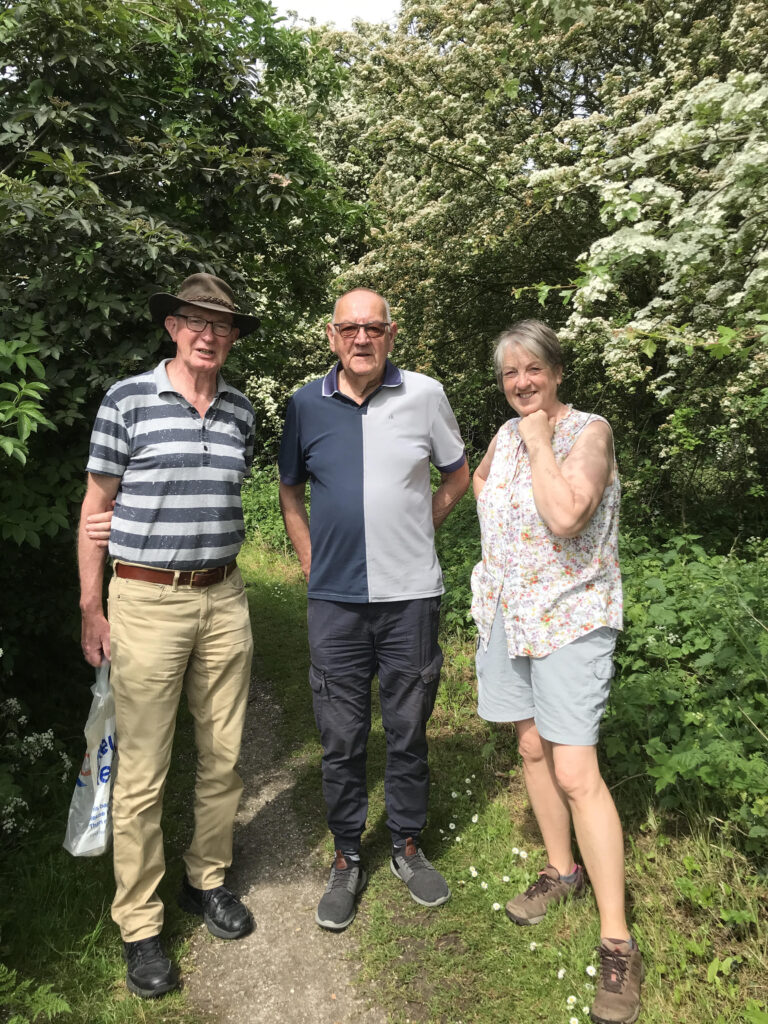
We were invited to run a stall and to give a talk for this event run by the Yorkshire Wildlife Trust. It was a showcase for the communities supported by #TeamWilder, and an initiative to promote nature restoration in the region.
For us, it was a great opportunity to network and have fun. We made useful contacts, and our game, Guess the Invertebrate, challenged visitors to learn about some intriguing creatures among our declining insect population.
It was also a chance for us to publicly thank Andy and Jo at #TeamWilder for all their great support over the past two years.
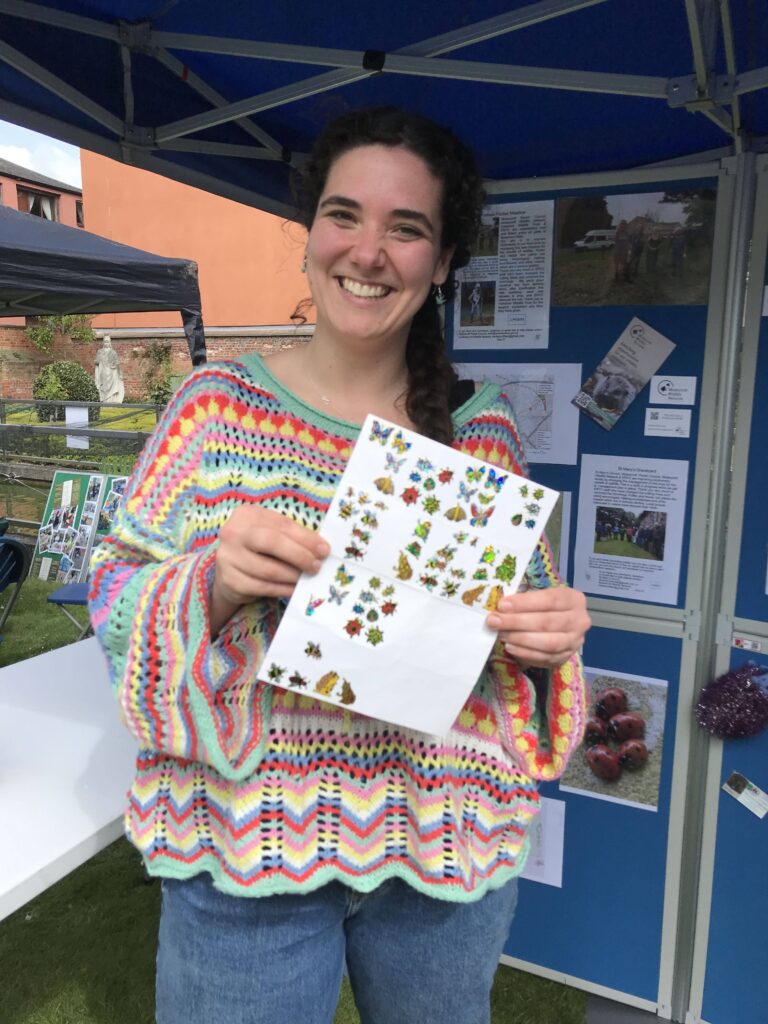
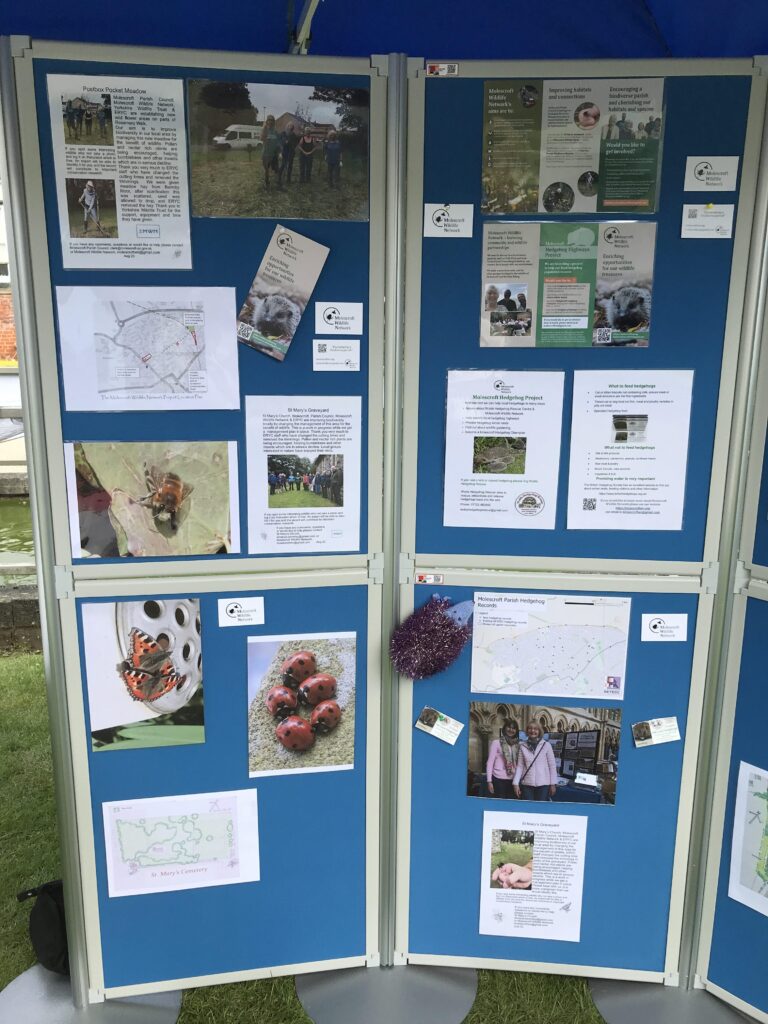
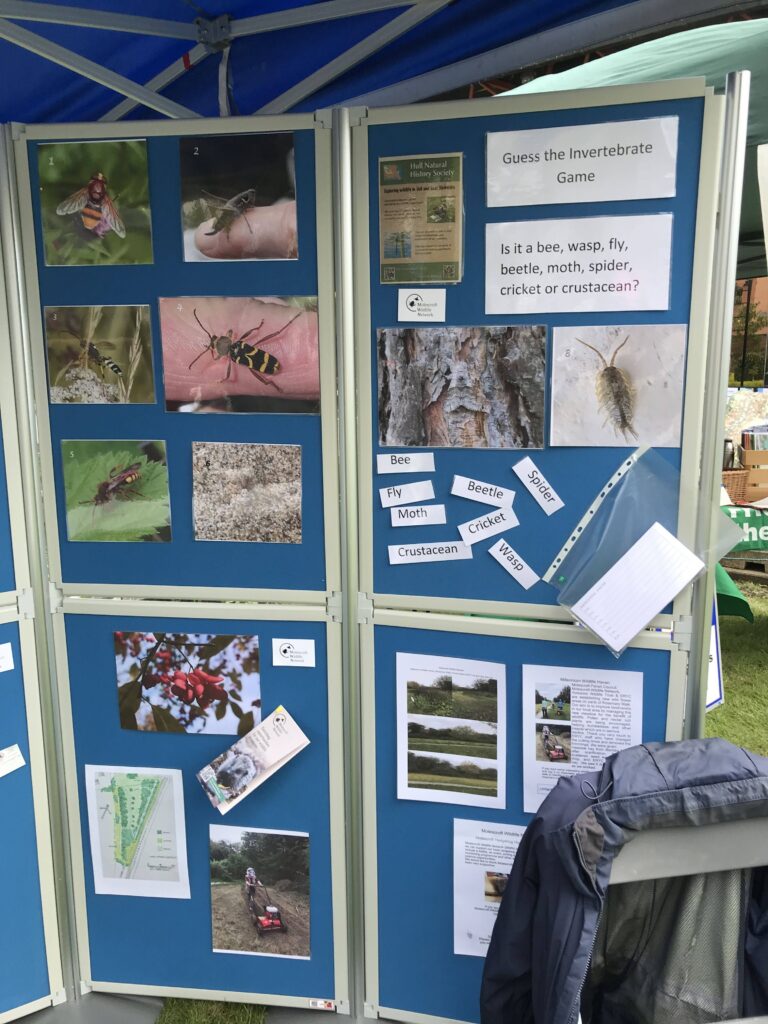
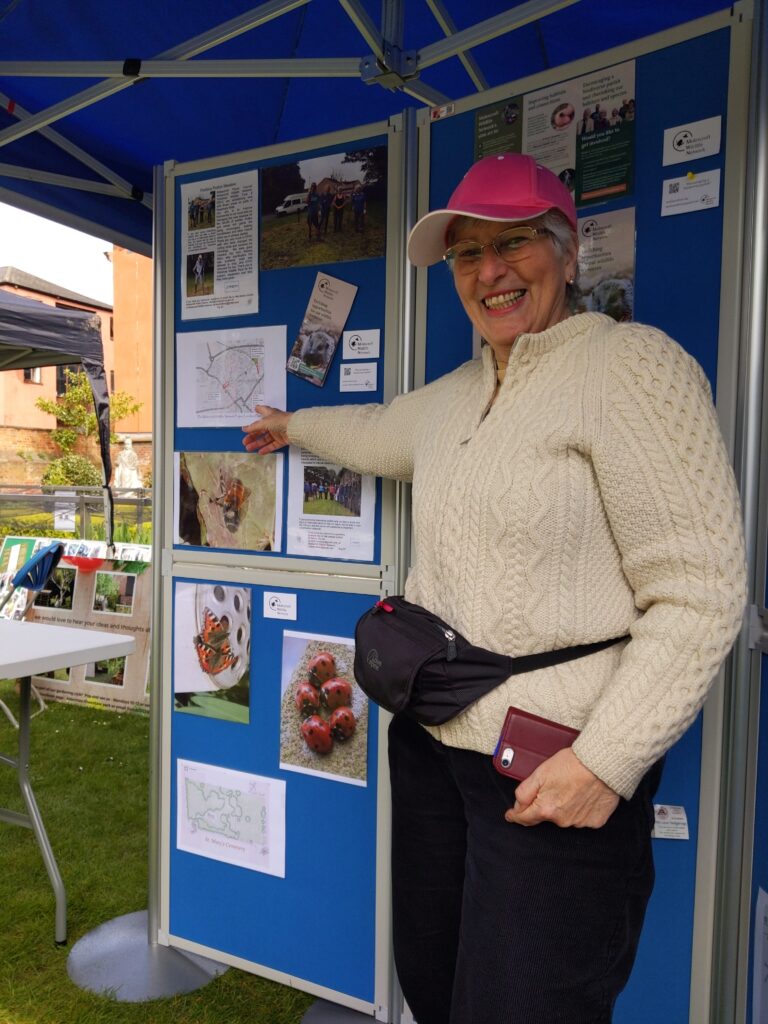
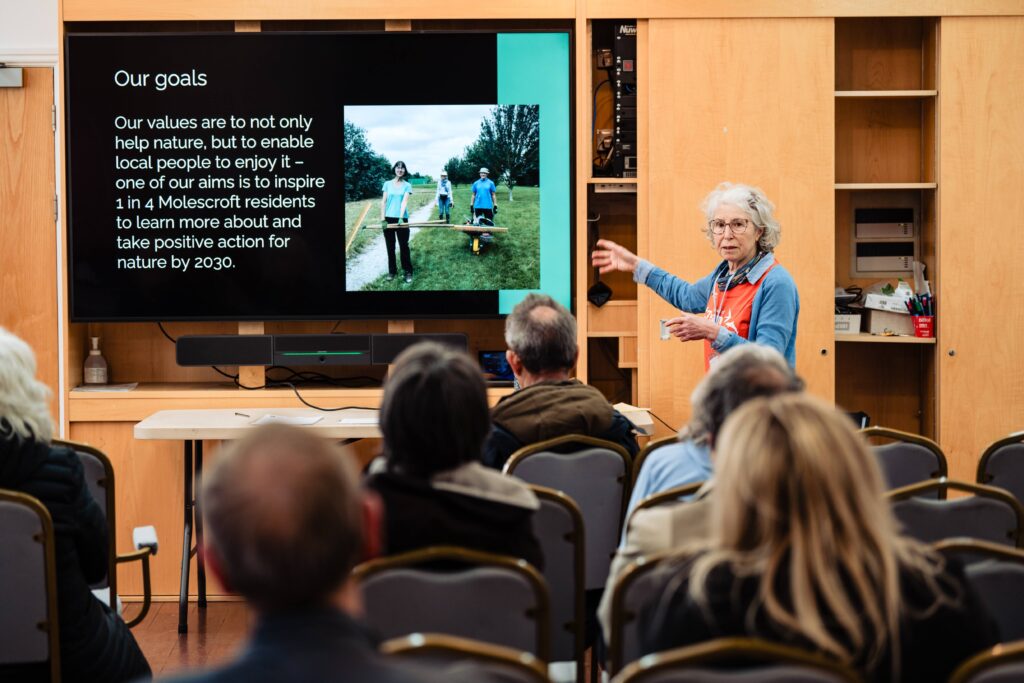

It’s No Mow May! Plantlife’s #NoMowMay is back this year.
It’s a great chance to save some money, create a feast for pollinators, tackle pollution, reduce urban heat extremes, and lock away atmospheric carbon below ground.
If you want to commit be sure to sign up to Plantlife’s initiative and register your participation.
You can also see how many people across the UK have comitted to No Mow May on this interactive map!
